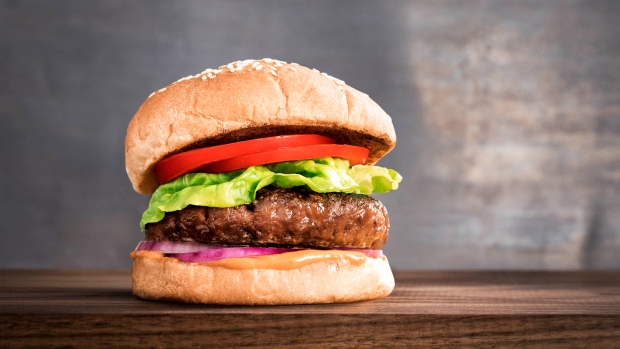Nov 3rd 2025
New plant-derived burgers taste great, but are they good for us?

New kinds of burgers made from plants, with the look, taste, smell and “mouth-feel” of real meat, are showing up in mainstream restaurants and grocery stores. They reportedly pass taste tests, even among die-hard carnivores, but are they healthy?
Current levels of meat consumption are unhealthy as well as environmentally unsustainable. An international commission of leading scientists assembled by the prestigious medical journal, The Lancet, concluded that, “The current global food system is unsustainable and requires an agricultural revolution …” if we hope to feed all ten billion people projected to inhabit the earth by 2050.
According to the Commission, cutting back on red meat production is an essential part of this revolution. A major consumer of land and water, and a major producer of greenhouse gas emissions, red meat, they say, should be limited to half an ounce per person per day, and other animal proteins should be reduced in our diets as well.
Enter two idealistic entrepreneurs, Ethan Brown, Founder and CEO of Beyond Meat, and Patrick O. Brown, MD, PhD (no apparent relation), Founder and CEO of Impossible Foods. Both are committed to creating “meat” and other “animal proteins” directly from plants, eliminating the “middleman,” or in the case of their burgers—the Beyond Burger and the Impossible Burger, the middle cow.
Producing burgers without cows would save huge amounts of water and land, and greatly diminish greenhouse gases. But at Beyond Health, we have concerns about how healthy these burgers are.
Neither company uses organic ingredients, and both burgers are relatively high in sodium.
The main ingredients in the Beyond Burger are water (possibly healthy depending on purification), pea protein isolate (possibly healthy depending on how it is made), canola oil and refined coconut oil (both probably toxic). Minor ingredients include “natural flavor” (a suspicious category that can hide a multitude of sins) and yeast extract (problematic for many people).
While the Beyond Burger is non-GMO verified, two of the Impossible Burger’s main ingredients are GM soy protein concentrate and their own genetically engineered heme from leghemoglobin, found in the roots of legumes, in this case more GM soy. Consumer Reports warns us that no human studies have been done to test the safety of leghemoglobin and that “the process of making it yields at least 45 other proteins as byproducts, which we also consume, and which also need further evaluation.”
The Impossible Burger also contains coconut and sunflower oils (quality unknown), natural flavors, yeast extract, cultured dextrose (sugar), and an array of vitamins and minerals in inferior forms.
While the Beyond Burger appears to be the better of the two, and both burgers are being continually improved, we can’t recommend either at this time.
At Beyond Health we advocate reducing dietary animal protein to no more than 2 ounces a day, and getting it from top-notch sources, such as organic, grass-fed beef and pasture-raised chickens.
For more on why excess animal protein is one of the four food categories responsible for causing the most disease, see Raymond Francis’ book, The Great American Health Hoax.
References:
- The EAT-Lancet Commission. Food in the Anthropocene: the EAT-Lancet Commission on healthy diets from sustainable food systems. The Lancet. February 2019;393(10170):447-492.
- Peachman, RR, Meat gets a makeover. Consumer Reports. October 2019, pp.42-47.
 Fuel your life with the purest vitamins
Fuel your life with the purest vitamins
